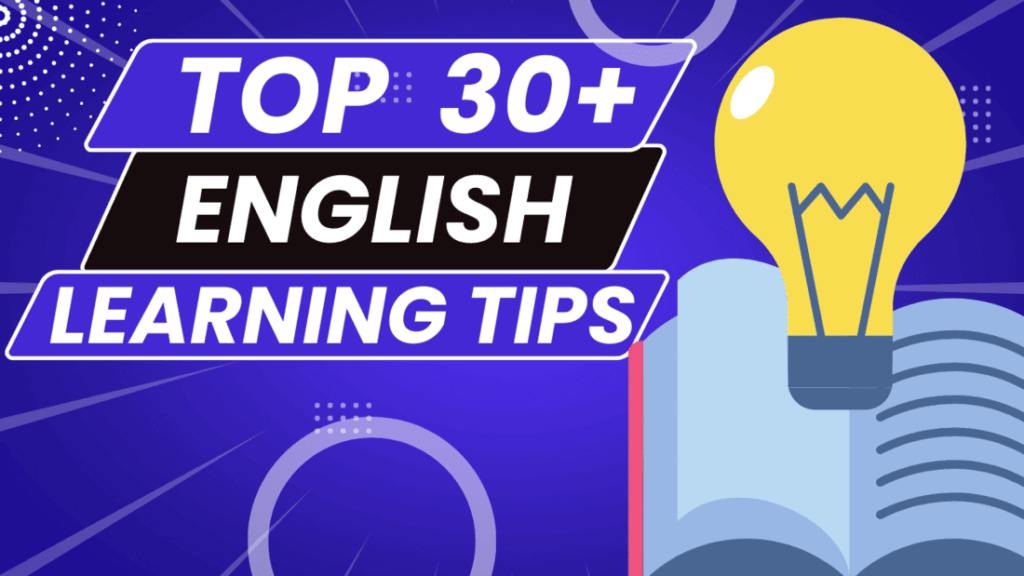
There are so many useful hacks out there that can help you to learn English easily, especially if you’re a beginner. In this article, I’m going to share with you the most useful ones so that you can get the most out of your learning experience. You can as well Subscribe To This Youtube Channel To Receive New Post Notifications & updates.
So if you want to know how to learn English quickly and properly, check out these Tips below!
Become a Master With Spelling
Spelling is one of the most important aspects of English. There are a few tricks you can use when spelling words that will help ensure you get the right answer every time.
If you’re not sure about how to spell a word, try looking for its root or common spelling variations. For example, alter may be spelled alternate and alternative.
If you know the meaning of a word but cannot remember how it’s spelled, look for it in an online dictionary such as Merriam-Webster Online.
Learn Pronunciation with Flashcards
One of the most important things you can do when learning English is to be able to pronounce words correctly. To help you with this, here are a few tips on how best to go about using flashcards for pronunciation!
- When making your own flashcards, write out the word in phonetic script and then write it again in the Roman alphabet. This will help you both understand what the word sounds like when pronounced properly as well as how the letters are pronounced.
Become Fluent in Idioms and Sayings
One of the most important aspects of learning a new language is understanding idioms and other sayings. These phrases are often used in conversation and can be difficult for those who don’t speak the language fluently.
Here are some of our favorites that we think you should learn as soon as possible! People will expect you to know them when they hear you speaking, so it’s best to get your head around them right away.
Here are just some of them so you get a feel for how they work.
- Bite off more than you can chew – Literally, this means eating too much food; metaphorically, it means taking on more than one person can manage.
- To put all your eggs in one basket – Allocating all one’s resources into a single enterprise or venture; metaphorically, risking everything on an outcome that may not occur.
- A penny saved is a penny earned – To save money by spending less or spending time wisely; also implying that something valuable was accomplished through hard work.
English Learning Tips By Mastering Your Grammar Rules
Whether you’re an English learner or a native speaker, there’s always room for improvement when it comes to your grammar. There are so many different rules and exceptions that it can be difficult to keep them all straight.
Here are a few of the most important ones that you need to know in order to master your grammar
- Proper nouns always have capital letters, even if they start with a lowercase letter.
- Use commas to separate independent clauses
- A semicolon is used between two main clauses (sentences) when the second clause explains or illustrates more about what is being said in the first clause
- Always use quotation marks around a speech from other people, but don’t use them around thoughts from yourself unless you’re quoting someone else within those thoughts themselves
Think Like an American or British
1. Learn English one word at a time.
2. Choose a variety of topics to read, such as newspapers, magazines, blogs, and books.
3. Listen to the radio or watch TV programs in English.
4. Find an English-speaking pen pal from around the world and practice your writing skills with them in English by email or letter exchange.
Take Advantage of Apps for Language Study
If you’re looking for a way to improve your English skills, there are a ton of apps out there. Here’s a list of some of our favorites.
- Duolingo: A free and fun way to learn a new language while working toward goals and staying motivated.
- Memrise: A computer learning system that uses flashcards, mnemonics, repetition, and games to help memorize vocabulary words in any subject. You can also find relevant articles from this category.
Don’t try to do too much at once
One of the most common mistakes I see when people are starting to learn a new language is that they try to do too much at once. They might think, I want to be able to speak fluently in two months! and then start speaking in their target language with native speakers right away.
While this might seem like a good idea, it can actually be counterproductive. Doing too much at once can lead to getting overwhelmed and eventually giving up altogether.
Be consistent with your learning plan
Learning a new language is not easy, and it can be even more challenging when your native language is not the same. Once you have made the commitment to learn, it is important to work on it every day.
The following are 10 of my favorite tips that I find helpful in achieving success in learning English.
1) Be consistent with your learning plan and make sure to work on it every day.
2) Watch TV and listen to music in English.
3) Read books written by authors who write exclusively or mostly in English.
4) Keep a journal of words or phrases that you don’t know how to pronounce.
Download free language learning apps for your phone
There are many apps out there that can help you learn a new language, but it might be hard to choose the right one. The following are some of the best apps for learning languages on your phone Duolingo, Memrise, and Babbel.
Downloading these will give you access to thousands of lessons from more than 50 different languages – including English. They’re all free!
Set daily goals you know you can achieve
Setting daily goals will help you stay on track, and see your progress. Choose goals that are realistic for you, and that you know you can achieve each day. For example:
1) I will practice my spelling skills for 10 minutes every day
2) I will read two pages of a book in English every day
3) I will listen to the radio in English for one hour every day.
Listen and repeat the same conversations over and over again
In order to learn a new language, you must be confident with the vocabulary and grammar of that particular language. One effective way to do this is by listening and repeating the same conversations over and over again.
This will help you get familiar with the correct pronunciation as well as the correct sentence structure.
Moreover, it will also give you exposure to idiomatic expressions that can only be understood when they are heard in context. These are just some of the many benefits of repetition in learning a language.
Practice speaking with native speakers in person and online
One of the best ways you can learn the language is by talking with people who speak it. The more native speakers you talk to, the better you’ll become at understanding and speaking it yourself.
Plus, if you’re using an app like HelloTalk or DuoLingo that connects you with other learners of your target language for free conversations and lessons, there’s no reason not to take advantage. You might even find a pen pal!
Study grammar rules when needed
The most important grammar rules you need to know are the present, past, and future tenses. The present tense is when something is happening now. For example, She eats lunch.
The past tense is when something happened in the past. For example, She ate lunch.
And the future tense is when something will happen in the future. For example, She will eat lunch.
Continue practicing what you learned on a daily basis
Practice is the key to success when learning anything. The more you practice, the better you will get. So even if it feels like a lot at first, try your best to practice every day. Before you know it, you’ll be fluent in no time!
Don’t worry about making mistakes: Mistakes are how we learn and grow. And remember, nobody’s perfect – not even native speakers!
Don’t stop speaking and listening to others as often as possible: Speaking and listening are two of the most important skills for learning English quickly.
It’s also good for practicing your listening skills (because sometimes it’s easier to listen than to read). Listen and repeat what you hear as often as possible.
Listen carefully
Listen carefully to the words people around you are saying. This will help you pick up on accents and patterns of speech that might otherwise be difficult for you.
– Watch movies with subtitles. I know it’s not as much fun without dubbing, but if you want to learn a language, this is one of the best ways for you to do it.
Take advantage of your subconscious mind
You’re more likely to remember words and phrases if you learn them while you sleep. Your subconscious mind is working while you sleep, so your brain has more time to absorb information and make connections between new words and phrases and what you already know.
Try using a sleep learning program like Pimsleur or Duolingo for about an hour before bedtime.
Use technology to help you learn better
Use a language-learning app like Duolingo or Memrise. Apps make it easy to practice vocabulary and grammar with interactive games and quizzes, which are more engaging than just staring at a textbook.
There are also loads of free apps out there for any level of learner, from beginner to advanced. One that I’ve found particularly helpful is iTalki, where you can connect with a native speaker to chat in real-time.
Make mistakes, they are important
You might be making mistakes right now. Mistakes are important. If you’re not making mistakes, then you’re probably not trying anything new or challenging yourself in any way.
It’s okay to make mistakes and it’s okay if you don’t know how to pronounce a word or how to use a new grammar structure. The only way that you’ll ever get better is if you keep practicing and acknowledging your progress along the way.
Keep trying even when it gets frustrating
It’s not easy, but it’s worth it. If you’re struggling and feel like quitting, keep going. It will get better. Remember that there are many people out there who have been where you are and have managed to succeed in the end.
If you can’t find a tutor or course which meets your needs, go for self-study: Self-study is also very important because it teaches students how to study independently with the guidance of a book or teacher.
Don’t give up!
It can be frustrating when you’re trying to learn a new language but don’t give up. With these tips, you’ll be speaking English better than you ever imagined.
1) Listen to as much English as possible.
2) Watch movies with subtitles or dubs in your target language.
3) Watch YouTube channels like TED Talks, Minute Earth, and Crash Course Kids in your target language.
Commit yourself
Learning a new language is difficult, but not impossible. It all starts with a commitment. Commit yourself to learning the language and sticking with it for at least two months before you quit.
This will allow you to retain enough vocabulary and grammar rules that will make it easier for you when you return to your studies.
Commit yourself by starting off strong. There are many ways to learn, but the most effective way is through constant repetition of words and phrases in your mind and on paper.
Take more chances
You can’t become fluent in a language without taking risks and making mistakes. The sooner you start trying out your skills, the better. If you’re feeling shy, try practicing with a friend or family member.
And if you’re out on the town, don’t be afraid to strike up conversations with strangers. Just use a few phrases at first to see if they respond positively, then feel free to go into more depth.
Not only will you get some useful practice but it’s also nice to talk to someone different for once!
Change your mindset
Learning a new language can be frustrating, but it doesn’t have to be. The key is changing your mindset. When you think about learning a language as an opportunity for personal growth, the experience becomes more positive and rewarding.
When you approach learning with optimism, you open yourself up to the myriad of opportunities that come along with mastering a new skill.
If you’re struggling to find motivation on your own, consider joining an online community or find someone who speaks the target language so you can practice together.
Lastly, start small: Commit to reading one page in a book in English each day before bedtime and build from there.
Track your progress
- Read! Reading is the best way to learn and understand the English language. Find a book that interests you and read it from cover to cover. If you’re not sure what to read, check out this list of recommended books for learning English as a second language.
- Listen! Listening to podcasts, music, audiobooks, or videos in English will help you get more comfortable with the sound of the language and improve your comprehension skills too.
Consistency is Key
The most important thing is to be consistent. Whether you have time for 10 minutes a day, or one hour a day, consistency will make all the difference in your progress.
One trick is to find what works best for you and stick with it. Another is to set a specific time each day that you work on your language skills, whether it’s first thing in the morning before breakfast or after dinner before bed.
Reflect on what you have learned
The best way to learn English is by taking an immersion course, where you will be completely immersed in the language.
Immersion courses are not just for people who want to become fluent in a few months, they are also perfect for those who don’t have that much time and need to learn the basics of conversational English.
A lot of people find learning with podcasts easy because they can do it while doing something else or while driving.
One thing all successful learners have in common is that they keep a journal or diary and write down their thoughts, feelings, insights, and ideas about what has happened during the day or week.
If you don’t know how to start writing one, try reflecting on your dreams – this will help you discover hidden feelings and memories from your subconscious.
Read more books
Reading is an activity that can significantly improve your language skills. The more you read, the better your vocabulary will become, and the easier it will be for you to understand what you are reading.
I find that this works best if I am able to read books in both my native language as well as English.
There is nothing wrong with listening to music or watching TV while simultaneously reading a book in a different language.
It may seem difficult at first, but it will make the process of learning new words much faster than trying to force yourself through without any distractions.
Understand the structure of the language
The verb to be is used a lot in the English language. In fact, it is one of the most frequently used verbs in the English language.
If you can master this verb, you will have a major advantage over other learners. There are not many languages where to be is such an important part of grammar and understanding it will help you progress much faster.
Consider creating flashcards with common verbs like to be, have, go, make, etc. so that you are always familiar with their usage and able to use them in sentences when needed.
Write lots of things down
- Find a TV series in your native language that has been dubbed into English and watch it. Then find the same series dubbed in your native language and watch it again. This will teach you how to understand what is happening onscreen, even if you don’t know the words being said.
- Read something new every day for at least 20 minutes. The more you read, the better your vocabulary will get!
Speak, speak, speak!
The best way to learn is by speaking. Find someone who speaks your target language, and have them talk with you for as long as possible. The more practice, the better.
Start off with simple phrases like What’s your name? or How are you? but don’t be afraid to get a little bit more advanced if you’re ready for it.
Do not use Google Translate or any other translating software – speak from memory and understanding will come naturally after a while.
 1blogxyz.com Contents Worth Sharing
1blogxyz.com Contents Worth Sharing

